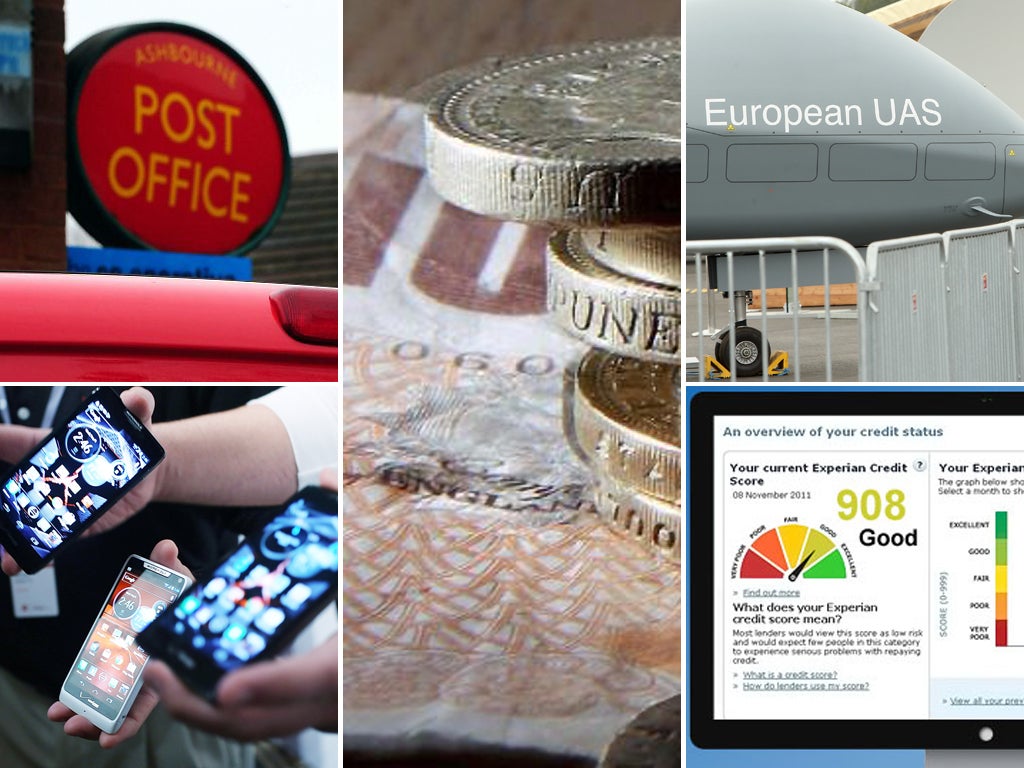Arms giant and credit firm sign up to No 10 online identity scheme

Your support helps us to tell the story
From reproductive rights to climate change to Big Tech, The Independent is on the ground when the story is developing. Whether it's investigating the financials of Elon Musk's pro-Trump PAC or producing our latest documentary, 'The A Word', which shines a light on the American women fighting for reproductive rights, we know how important it is to parse out the facts from the messaging.
At such a critical moment in US history, we need reporters on the ground. Your donation allows us to keep sending journalists to speak to both sides of the story.
The Independent is trusted by Americans across the entire political spectrum. And unlike many other quality news outlets, we choose not to lock Americans out of our reporting and analysis with paywalls. We believe quality journalism should be available to everyone, paid for by those who can afford it.
Your support makes all the difference.Online benefit claimants will from next year be asked to verify their identities by giving a password to one of a list of private organisations that includes a credit check company, an international telecoms giant and a global defence company.
The Government yesterday announced its first seven partners in its controversial national Identity Assurance scheme which will allow online access next year to the new Universal Credit programme. The system is designed to avoid users having to register through a Government website and creating a Big Brother-style National Identity card by the back door.
The initial partner organisations selected by the Department for Work & Pensions includes: Post Office; Experian, the credit reference company; Cassidian, the defence and security division of the pan-European aerospace giant EADS; and the American global telecommunications giant Verizon.
Many of the anticipated household name partners in the scheme – such as the High Street banks – have not been registered. A source said: “The companies on the list all met the criteria but the market place will grow and there will be more choices.”
Peter Warren, chairman of the Cyber Security Research Institute, said the list was disappointing. “Trust is the keystone of the Internet and if people are to trust these organisations they will need to know a lot more about them. To many people it will be unclear why they should be giving their personal data to companies that appear to have nothing to do with public services.”
The Identity Assurance scheme, revealed in The Independent last month, is intended to revolutionise the use of public services without creating a Government-run national online identity system. Ministers hope the programme will become a model for Identity Assurance for online access to all public services. Online users are given a choice of which partner to identify themselves with but the information on which government service is then accessed by the user is not shared with the third party organisation.
Naming its initial seven trusted partners yesterday, the Minister for Welfare Reform Lord Freud said: “We are working with cyber security experts to ensure we are clear about the threats to the online process and we are confident that the providers announced today will offer an effective, safe and free to use identity service for future online benefit claims.”
Initially the Government invited 44 suppliers, including banks and Internet giants, to tender for the 18-month contracts. Civil servants are understood to have held talks with high street banks, mobile phone companies and technology giants ranging from Facebook and Microsoft to Google, PayPal and BT.
The other digital identity partners selected by the DWP for the first stage of the project were Digidentity, a Dutch-based digital company, Ingeus, an Australian welfare to work company, and Mydex, a British personal data company. Between them the companies, plus an unnamed eighth partner organisation will be paid £25m for their involvement in the project.
Other identity partners, including the High Street banks, may be introduced to the system as it is rolled out across Whitehall. Ministers hop the new identity model will “prevent ‘login fatigue’ [from] having too many usernames and passwords” and save public money by increasing trust in online services. The system is likely to be adopted by local authorities nationwide.
Join our commenting forum
Join thought-provoking conversations, follow other Independent readers and see their replies
Comments